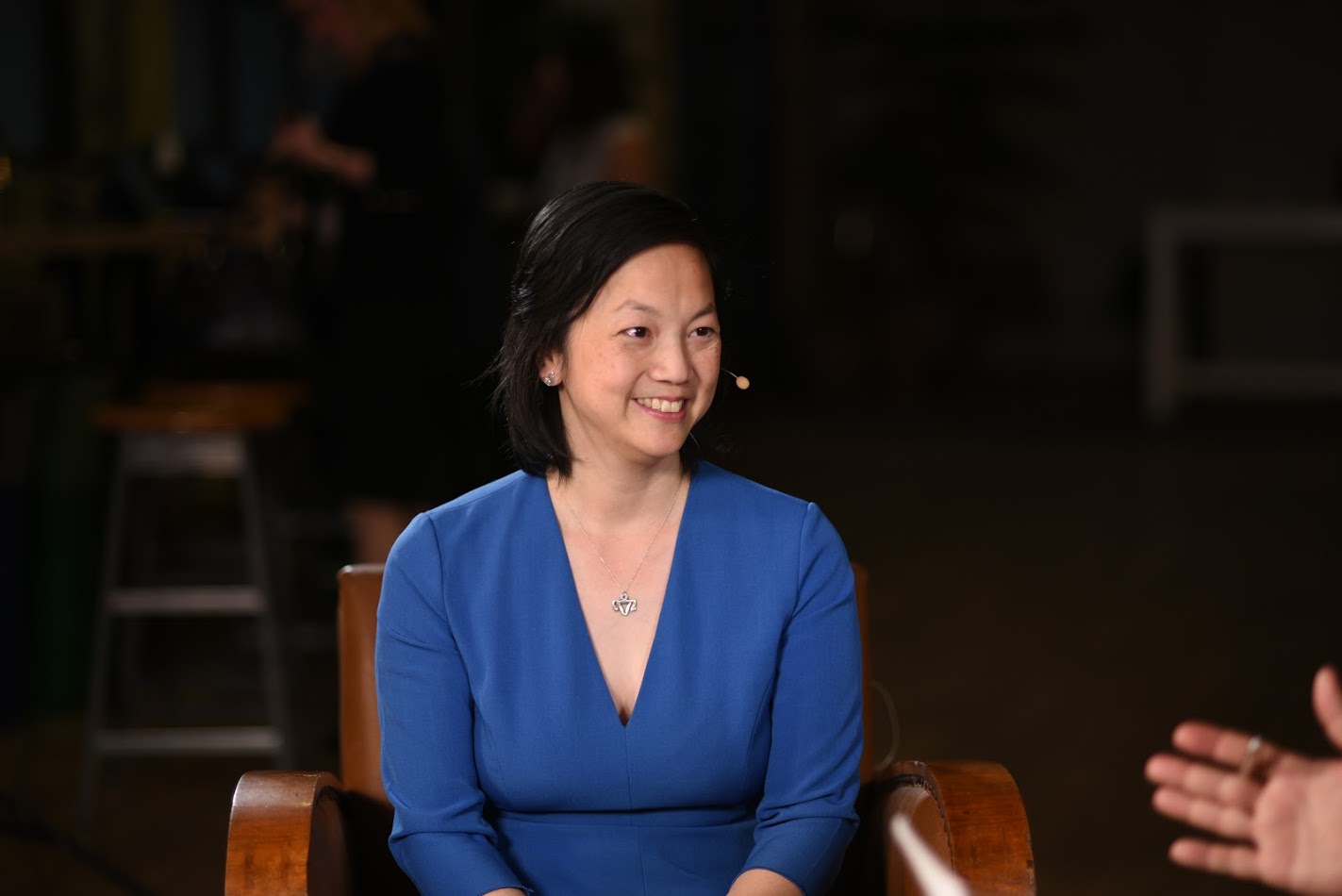 WOMEN IN TECH
WOMEN IN TECH
 WOMEN IN TECH
WOMEN IN TECH
 WOMEN IN TECH
WOMEN IN TECH
The digital transformation is sweeping all industries, healthcare being among the most anxious to adopt advanced technologies. With an aging population and the rapid development of analytics and edge device technology, growth projections for the telemedicine industry expect to reach a $34-billion-dollar industry by 2020.
Taking advantage of the telemedicine boom is Dr. Sophia Yen, MD, MPH and CEO and co-founder of Pandia Health Inc. She recently sat down with Jeff Frick (@JeffFrick), host of theCUBE*, from the SiliconANGLE Media team, at The Girls in Tech Amplify Women’s Pitch Night, where she pitched her startup at the competition for female technology founders.
Yen, is trying to raise $2 million dollars for her web program she described as “tech medicine meets amazon prime for birth control and acne.” Her business model is to provide online convenience to millions of women who spend 10 weeks of their lives waiting at the pharmacy for contraceptive medication, she explained. Due to her dedication to improving the lives of women through innovative technology and progressive business models, theCUBE features Dr. Yen as our Women in Tech guest of the week.
“One of the top three reasons women don’t take their birth control is because they don’t have it on hand,” stated Yen. The second reason is that their prescription expired. “I’m a doctor, I can write prescriptions, so the women just fill out a questionnaire and if all is good we refill the prescription and keep shipping it to you,” she continued.
How is this all possible? In 2012 the American College of Obstetrics and Gynecology deemed birth control as an over-the-counter medicine. Pointing to cost and the time-consuming process of going to the physician to renew prescriptions as the leading cause of women not taking their birth control, Yen stated the results were an increase in unplanned pregnancies.
Several states have passed laws that enable pharmacists to prescribe birth control pills by completing a questionnaire based on a standard procedures algorithm. This form monitors certain health factors and provides a protocol that helps to determine how to move forward with filling a prescription. States allowing pharmacists to do this include Oregon, California, Washington, and, most recently, New Jersey.
According to Yen, Pandia’s website has a delightful user interface that the pharmacies have not figured out. “We want to make women’s lives easier. We want to make sure that no woman runs out of birth control on our watch, and our hashtag is #skipthetrip,” she said.
By improving the end-user experience, telemedicine is proving to be a cost- and time-saving supplement for the healthcare industry. Many sites like Teladoc provide a one-to-one phone or video experience to their patients. Teledoc boasts a 10-minute average response time, 24/7 availability and a 95 percent satisfaction rate.
However, telemedicine is not without its critics. Some patients prefer a face-to-face meeting with a doctor, and recently Teledoc had to challenge a restrictive telemedicine rule, requiring an in-person examination before a doctor could prescribe medication or treatment. The state dropped the case, and Teledoc prevailed.
Yen told Frick that her company is currently serving California residents and hopes to expand to all 50 states. She indicated that companies like Teledoc are fighting the battles in states with restrictions, helping smaller startups like Pandia Health, which is also is seeking to augment its treatments with acne care and ancillary products.
The healthcare company uses four different technology platforms to serve patients, manage care, assist physicians and to order from the pharmacy. However, the most interesting use of technology is an AI component that takes the information from the questionnaires and categorizes it into three areas for the physician.
“Red, don’t write this prescription. Yellow, you can but you’ve got to talk to the patient, and green everything looks good. Go write it,” Yen explained. The program is used by the physicians to help them avoid mistakes.
Yen refers to the technology and indicates that when done in person, not all the questions get asked during a doctor’s visit. Technology leaves out the human error and provides evidence-based medicine.
*Disclosure: Girls in Tech and other companies sponsor some Girls in Tech – Amplify segments on SiliconANGLE Media’s theCUBE. Neither Girls in Tech nor other sponsors have editorial control over content on theCUBE or SiliconANGLE.
Watch the complete video interview below, and be sure to check out more of SiliconANGLE and theCUBE’s coverage of Girls in Tech – Amplify Women’s Pitch Night 2016.
THANK YOU